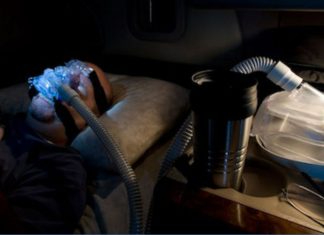In a revealing case of deceptive practices within the transportation industry, the owner of an Ohio trucking company admitted guilt in federal court for engaging in wire fraud by manipulating shipping operations to his advantage, leading to significant financial and material losses. This incident serves as a stark reminder that attempting to cut corners through dishonest means can ultimately result in substantial costs.
Gurtej Singh, a 48-year-old business owner from Columbus, Ohio, faced charges in the U.S. District Court for orchestrating a scheme to overcharge shippers by unlawfully consolidating their shipments without consent, thereby compromising the integrity of goods destined for notable locations such as Bath and Body Works and Amazon warehouses across Ohio. Singh’s actions not only breached trust but also led to the disappearance of goods valued in the hundreds of thousands of dollars.
Singh’s fraudulent activity involved tampering with sealed truck trailers to extract goods, which were then unlawfully combined with other loads to reduce shipping expenses, often resulting in the failure to deliver many items to their intended recipients. From April 2018 to December 2019, Singh managed Cargo Solutions Express’s warehouse and later established Bhullar Transport Group LLC, which he owned and operated until May 2022, continuing his deceptive operations from a warehouse on Interchange Road in Columbus.
In a deceitful move to further his business interests, Singh falsified an application with the Federal Motor Carrier Safety Administration (FMCSA) in January 2019, claiming no affiliations with other regulated entities, despite his connections to Cargo Solutions Express and two additional trucking firms, Roadhawk Transportation and Show Time Carrier. These companies offered interstate transportation services for manufacturers and retailers who often paid extra to ensure their cargo was transported exclusively, without being mixed with other shipments. To safeguard their goods, shippers employed serialized plastic seals and documented the serial numbers, expecting that this would guarantee the cargo remained untouched during transit.
Contrary to their expectations, Singh and his accomplices charged premium rates but compromised the security of these shipments by opening trailers and consolidating cargos to maximize their profits. They employed various tactics, such as altering seal numbers and falsifying paperwork, to conceal their fraudulent activities from unsuspecting shippers and receivers.
A particularly egregious instance of this fraud occurred in December 2018 when Cargo Solutions Express transported a shipment from Santa Clarita, California, to Reynoldsburg, Ohio, for Bath and Body Works. Although the shipment arrived with its seal apparently intact, it was discovered that 10 pallets of products, valued at nearly $230,000, were missing. A subsequent law enforcement search of the Cargo Solutions Express warehouse unearthed these missing items, alongside additional stolen goods intended for an Amazon warehouse in Groveport, Ohio.
This case underscores the critical lesson that shortcuts rooted in dishonesty can lead to dire repercussions, financially and beyond. It highlights the importance of ethical conduct in business operations and the severe consequences that can arise from attempting to exploit the system for personal gain.
















